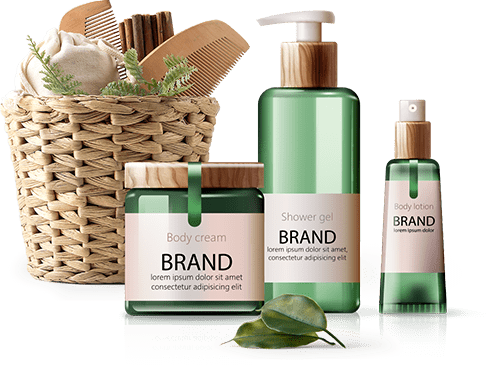Grasping the new trend of exosomes: Applications and business opportunities of plant vesicles in skincare OEM/ODM

1. What are Exosomes?
Exosomes are specialized, double-lipid membrane-bound vesicles secreted by cells, containing proteins, RNA, lipids, and other signaling molecules. They are not a single compound, but rather a group of "biological signaling carriers," each with its own distinct origins and vastly different properties and applications.
Simply put, exosomes act like "cellular couriers," packaging and delivering important molecules to other cells, thereby influencing their behavior, such as adjusting gene expression, promoting repair, regulating immune responses, or maintaining environmental balance.
Currently, exosomes are primarily used in three areas:
- Medical/Regenerative Medicine: Research continues in wound healing, degenerative diseases, and immune regulation.
- Aesthetic Medicine: Some clinics are experimenting with using exosomes in injections or treatments, but this often falls within a gray area and carries high regulatory risks.
- Beauty and Skincare: Exosomes are beginning to be used as repair and anti-aging ingredients, and are increasingly being incorporated into the formulation of skincare products manufactured by contract manufacturers, but safety and efficacy data are still needed to support this.
However, many brands in the market equate "research potential" with "product efficacy," leading to the prevalence of exaggerated slogans like "miracle regeneration" and "stem cell-level repair." These claims lack scientific data support and are prone to crossing regulatory red lines.
For brands, exosomes do have potential and potential, but careful positioning is crucial at this stage.

II. Why Are Exosomes So Popular in the Market?
Exosomes' popularity stems primarily from two factors: their perceived effectiveness and their perceived technological potential. Consumers perceive them as representing breakthroughs in "stem cell-level repair," "anti-aging regeneration," and "regenerative medicine." They evoke the feeling that "simply applying skincare products at home can achieve aesthetically pleasing results," leading to high consumer expectations.
However, this craze also presents significant challenges:
- Scientific research is still in its early stages, and human clinical data is insufficient
- Strict regulations in Taiwan and internationally can lead to potential missteps
- Advertising regulations are vague, and overemphasizing claims of "regeneration" and "stem cell-level repair" can easily lead to violations
Due to consumer anticipation, many brands have rushed to jump on the bandwagon, leading to frequent incidents of regulatory violations. The market is flooded with exaggerated slogans like "miracle regeneration" and "stem cell-level repair," and even their legality remains a matter of debate. Recently, the media even described this as the "exosome chaos." This confusion not only deepens market concerns but also causes consumers to lose trust amidst a lack of transparency.
However, a closer look reveals that consumers aren't truly pursuing exosomes as a single ingredient, but rather the combination of "effects, technology, and new ingredients." Exosomes are just a starting point; the real core demand behind this trend is the desire to achieve both "perceptible restorative power" and "innovative technological innovation" in daily skincare products. 
III. Plant Exosomes = Plant Vesicles? A New Opportunity for Safely Entering the Skincare OEM Market
Exosomes can be broadly categorized by source: Human exosomes and Animal exosomes.
- Human exosomes (e.g., stem cell, umbilical cord): These exosomes have attracted significant attention due to their potential efficacy, but require individual review by the TFDA in Taiwan and are completely banned in the EU and China, making their importation extremely difficult.
- Animal exosomes (e.g., milk, colostrum): These exosomes offer a stable source and high yield, but require cold chain storage and logistics, resulting in relatively high costs. Furthermore, proper INCI registration is essential for legal use.
Another controversial topic is "plant exosomes." It's important to clarify that the "plant exosome skincare products" commonly found on the market are often actually "plant-derived vesicles (PDVs)." Although the production mechanisms of plant vesicles and mammalian exosomes differ in theory (exosomes are mostly released from intracellular multicellular bodies, while plant vesicles are mostly derived from structures such as the plasma membrane or vacuole), they both possess the ability to carry proteins, lipids, and small molecules, transmitting signals between cells and producing biological effects such as repair, antioxidant effects, and soothing effects.
Currently, the term "plant exosomes" lacks a clear theoretical and regulatory definition, leading to controversy surrounding its use in contract manufacturing and marketing. It is recommended that brands prioritize the use of "plant vesicles" in skincare product naming and promotion after contract manufacturing. This ensures regulatory compliance and enhances transparency and trust in marketing communications.

IV. Market Trends and Positioning of Plant-Based Vesicles in Cosmetics OEM Manufacturing
From a market perspective, the global beauty industry is evolving from "natural and additive-free" to a new direction of "natural & technology combined." The global herbal beauty market is estimated to reach US$940-990 billion in 2024, with a compound annual growth rate of 13.6% from 2025 to 2033, and is expected to continue growing at an annual rate of 6-13% in the future.
Concurrently, the market for skincare products containing exosomes is also rapidly emerging, projected to grow from US$418 million in 2025 to US$809 million in 2032, at a compound annual growth rate of approximately 9.9%. Keyword search volume increased 2.5 times between 2024 and August 2025 and continues to grow, demonstrating the market's enthusiasm and high potential. For skincare OEM/ODM manufacturers, this represents not only emerging demand but also a crucial opportunity for brands to prepare for the market.
It's worth noting that while exosomes still face limitations in terms of regulations and clinical data, the "medical-grade technology" they bring has already created a strong long-term impact, continuously influencing consumers' expectations for high-performance skincare. Therefore, combining a "natural plant & technology" strategy perfectly addresses this consumer demand for "effectiveness & innovation & safety," allowing brands to respond to market trends while also providing more compliant products.
※Data Source: IMARC Group Global Market Research Report, Coherent Market Insights, Google Trends Market Research Compilation
Plant Vesicle Ingredients
- Polygonum multiflorum vesicles: Research indicates potential for antioxidant and photoaging applications, making them a promising ingredient for anti-aging product development. They have been registered with the INCI (Institute for the Cosmetic Industry) and are legally permitted for use in cosmetic formulations.
- Ganoderma lucidum vesicles: Research has shown them to possess soothing and restorative properties. They have been registered with the INCI designation and are legally permitted for use in cosmetic formulations.
Our differentiated positioning lies in "herbal & innovative technology," highlighting their natural qualities while also offering both scientific and market value-added advantages. While market demand continues to rise, regulations for plant-based exosomes remain fluid and uncertain. Using "plant-based vesicles" as an alternative offers a simpler, more compliant, and faster path to market entry, making them an optimal strategy for brand development.

V. Conclusion: Professional R&D Capabilities for Skincare OEM
Exosomes are not a panacea; rather, they are an ingredient that must undergo scientific validation, regulatory oversight, and professional R&D to be truly implemented. Meiwang not only provides OEM/ODM services for skincare products, but also strives to become a complete solution partner for brands:
- Source Control: Ensure the transparent origin of raw materials, accurate INCI labeling, and compliance with safety regulations.
- R&D Application: Flexibly introduce plant vesicles into essence, hair care, anti-aging and other product lines to enhance product differentiation.
- Risk Control: Help brands avoid regulatory risks and ensure that products can be legally and safely launched on the market.
In MayWan’s view, exosomes symbolize market trends and medical aesthetics technology, while plant vesicles are a new opportunity for brands to safely introduce them. Through the R&D strength and regulatory experience of skincare OEM, we combine plant characteristics with technological applications to help brands transform "topics" into "actual products" and create unique market competitiveness.
Contact a professional development consultant now
Let us work together to create unique products that are both effective and market-leading.
TEL: (06) 796-1312
LINE ID: @maywan
- 2025 Hong Kong Beauty Expo (Cosmoprof Asia) | Post-Expo Highlights Summary
- Analysis of the Latest Haircare and Scalp Care Trends: Salon-Grade Shampoo ODM & OEM/ODM Scalp Care Development Guide
- Say no to oily skin! Understand the root cause of oiliness and restore moisturized skin
- Compliance with skincare OEM/ODM manufacturers can vary widely! Two essential principles for choosing a manufacturer
- [2026 Cosmetic PIF Implementation Guide] Understand Regulations, Costs, and Penalties at a Glance | Professional OEM Assistance
- Anti-hair Loss Product Formula Analysis: Three Popular Non-medicinal Hair Care Ingredients Recommended
- What certification systems are there for cosmetics manufacturing? Learn about ISO 22716 and Taiwan's voluntary cosmetics GMP in seconds
- 3 essential key points for OEM/ODM skincare products! OEM skincare factory products and experience are crucial


